Understanding AI’s Role: Balancing Job Transformation and Human Value
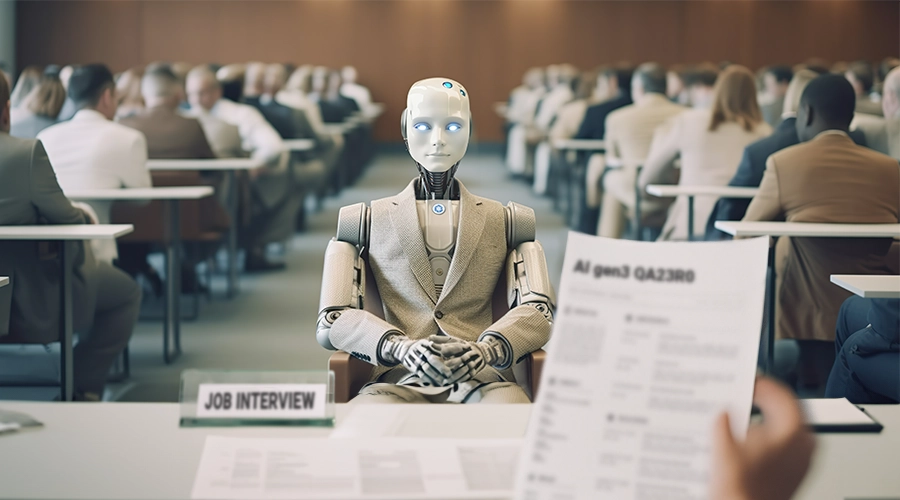
Artificial Intelligence and The Workforce: What Jobs Will AI Replace?
Understanding AI's Role: Balancing Job Transformation and Human Value
As AI technology speeds ahead, it's shaking up the job market in big ways. This rapid evolution sparks debate with a mix of anticipation and concern: which roles will AI replace, and which will stand the test of time?
This conversation is critical, as it navigates the delicate balance between embracing innovation and preserving the essence of human contribution in the workforce.
Will AI Replace Programmers?
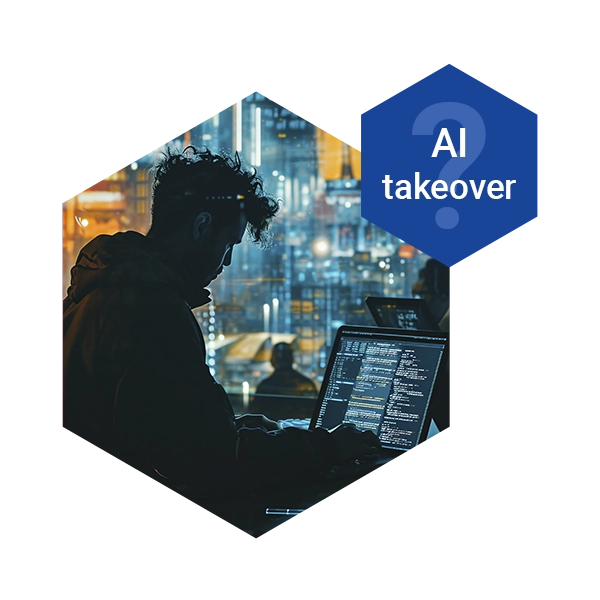
Software engineering and development are at the heart of the AI revolution. With AI and automation tools increasingly adept at coding, debugging, and tackling complex tasks, the role of programmers, software engineers, and web developers is in the spotlight.
However, the reality is that the demand for skilled software developers is on the rise, especially for those who can integrate AI into company workflows. This shift suggests that rather than replacing programmers, AI is creating new opportunities for them to enhance their skills and contribute to more advanced projects.
The integration of AI into existing frameworks demands a higher level of expertise and creativity from developers. Technologies like GitHub Copilot and Google's TensorFlow are reshaping the landscape, signaling a shift towards a collaborative coexistence between AI and human developers. For professionals in this domain, adapting involves an embrace of AI and machine learning skills, coupled with a commitment to continuous learning and innovation.
Will Data Analysts Be Replaced by AI?
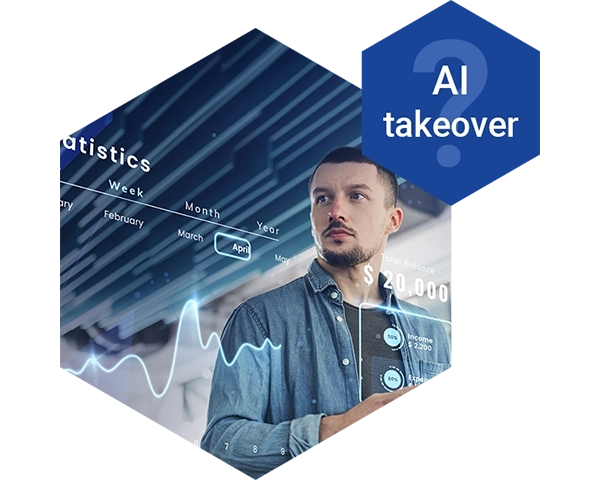
AI excels at handling the more mechanical aspects of data analysis, such as data cleaning, processing, and even identifying basic patterns within large volumes of information. Tools like machine learning algorithms and AI-driven analytics platforms can crunch numbers and process information at a scale and speed far beyond human capability. This ability to automate repetitive tasks is undeniably transformative, potentially shifting the focus of data analysts from the nitty-gritty of data manipulation to higher-order analytical thinking.
Despite AI's advancements, the role of a data analyst encompasses far more than just crunching numbers. Data analysts bring critical thinking, contextual understanding, and strategic insight to the table - qualities that AI, at its current level of development, can't replicate. Market research analysts can interpret data in the context of broader business goals, societal trends, or specific industry challenges, adding a human touch and a layer of strategic decision-making.
Moreover, data analysts play a crucial role in communicating insights to stakeholders, translating complex data findings into actionable business strategies. This requires not only a deep understanding of the data, but also the ability to engage with and persuade others.
Will AI Replace Lawyers?
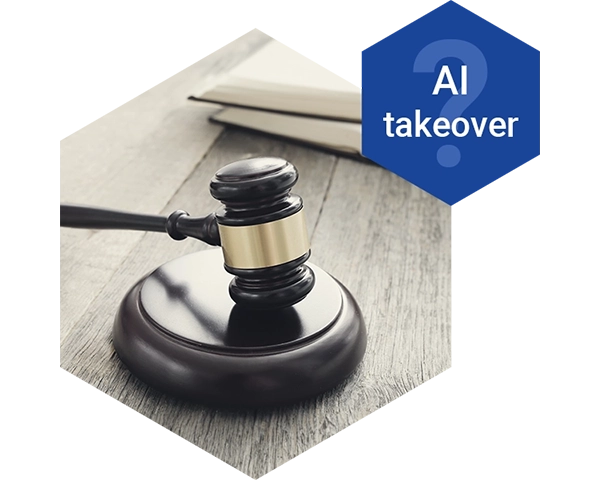
The legal industry faces significant disruption from AI, with technologies automating tedious document analysis and facilitating case research.
AI tools, such as IBM Watson and LexisNexis, demonstrate the potential to streamline aspects of legal work, yet they fall short of replicating the nuanced human judgment of lawyers, paralegals, and legal professionals. Automation tools can streamline research and documentation, but the core of legal work — advocacy, ethical reasoning, and client counsel — remains distinctly human.
We see the potential for legal professionals to leverage AI for efficiency, freeing them to concentrate on the aspects of their role that require a personal touch, critical thinking, and emotional intelligence.
Will AI Take Over Copywriting?
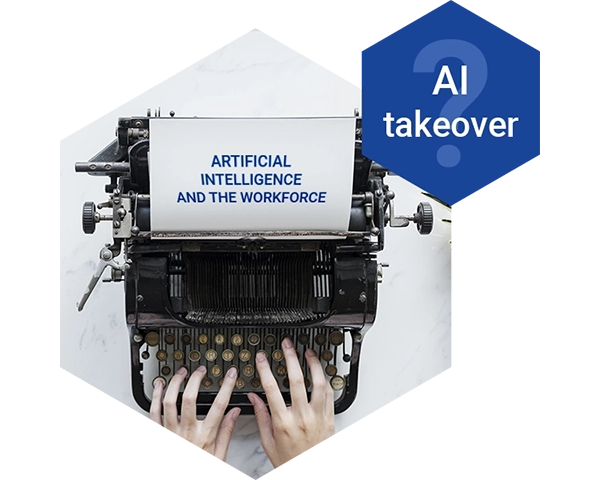
Generative AI tools, powered by advanced algorithms and vast databases of existing text, have shown impressive capabilities. They can write articles, marketing copy, and even creative content at a speed and volume that far surpass human capabilities. The recent Hollywood writers' strike against AI underscores the industry's concerns over creative integrity and economic fairness.
However, the essence of copywriting — a craft that melds creativity, empathy, and strategic insight —remains uniquely human. Still, AI writing tools have become invaluable for generating first drafts, brainstorming ideas, or overcoming writer's block, offering a base upon which human creativity can build.
While AI can mimic certain stylistic elements and adhere to grammatical conventions, its understanding of nuance, tone, and context is limited. Moreover, copywriting often requires a deep understanding of brand voice and identity, something AI can mimic but not truly comprehend.
For copywriters to thrive in this AI-enhanced landscape, adapting is key. Copywriters should view AI as a tool that frees them from the constraints of time and routine tasks, allowing them to invest more in the creative and strategic aspects of their work.
Will Cybersecurity Experts Be Replaced by AI?
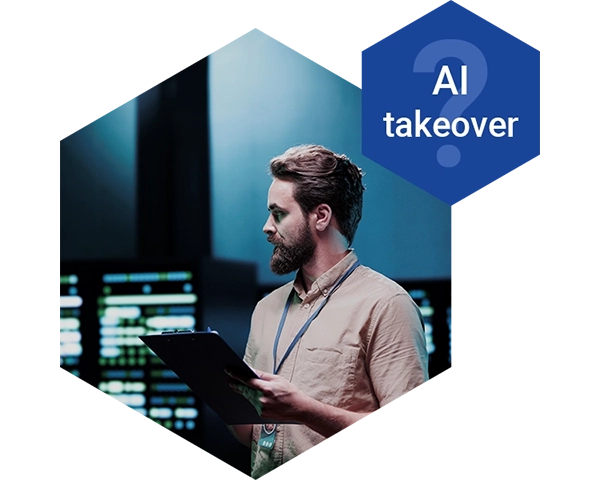
AI-driven technologies like machine learning algorithms can swiftly detect patterns and anomalies, offering a crucial edge in identifying vulnerabilities and responding to cyber threats. This capability enhances the traditional methods of cybersecurity, making AI a valuable addition to the security toolkit rather than a replacement for human expertise.
Cybersecurity is a complex field that combines technical skills with strategic thinking, ethical considerations, and regulatory compliance — areas where human professionals excel. While AI can process and analyze data at remarkable speeds, it lacks the ability to make nuanced decisions and understand the broader implications of security measures. Human experts are essential for interpreting AI's findings, making informed decisions, and maintaining a balanced approach to security that aligns with organizational goals.
Furthermore, the integration of AI into cybersecurity practices doesn't eliminate the need for human oversight; rather, it shifts the focus of cybersecurity professionals to more strategic and analytical roles. They are tasked with overseeing AI operations, ensuring that automated actions are appropriate and effective, and adapting security strategies to evolving threats.
For more insights into AI's role in cybersecurity and the potential risks it poses, check out our detailed OWASP Top 10 LLM Potential Security Risks analysis.
Will AI Replace Accountants?
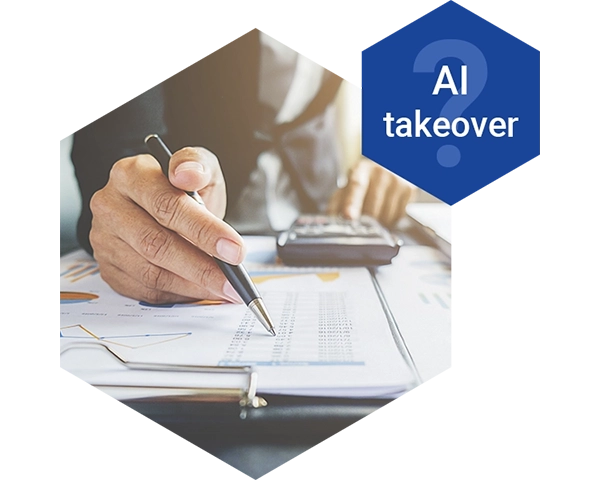
The narrative of AI in accounting is not about replacement, but augmentation. With AI's proficiency in data analysis, fraud detection, and even financial advising, one might wonder if accountants are facing redundancy.
Despite these technological strides, human involvement remains critically important. AI excels in processing and analyzing data, but it lacks the ability to make nuanced decisions based on that data. Accountants bring a level of professional judgment and strategic insight that AI cannot replicate, especially in areas requiring interpretation of complex regulations, ethical considerations, and the nuances of financial forecasting.
Moreover, the relationship management aspect of accounting — advising clients, understanding their unique financial landscapes, and providing customized planning — relies heavily on human interaction and trust. Accountants serve not just as data processors but as strategic advisors, roles that demand empathy, ethical judgment, and creative problem-solving skills.
The shift towards AI in sectors like investment banking, as seen with BlackRock's AI-driven strategies, highlights a trend towards augmenting human capabilities rather than replacing them entirely.
Will AI Replace Healthcare Professionals?
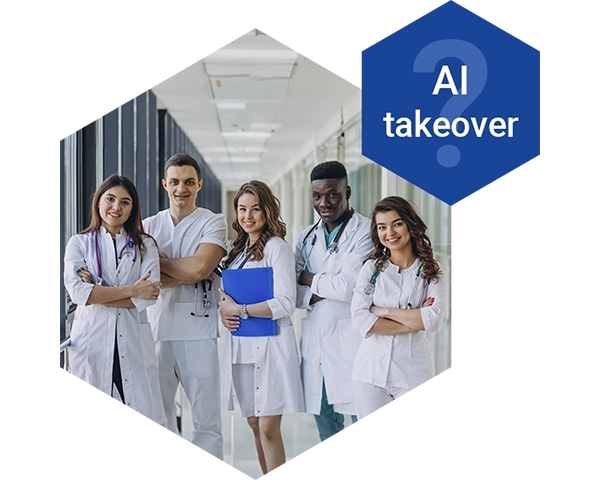
AI applications in healthcare are diverse and impactful. They range from diagnostic algorithms that can detect diseases from imaging scans with accuracy comparable to or exceeding that of human experts, to AI-driven platforms that personalize patient care plans based on historical health data. AI systems are also streamlining administrative tasks, such as coding medical records for billing, with a level of precision and efficiency that challenges the need for manual processing.
Despite these advancements, the consensus among healthcare professionals and technologists is that AI will enhance rather than replace human roles in healthcare. For instance, while AI can assist in diagnosing diseases, the final judgment and treatment decisions often require human oversight. This is because medical practice involves nuanced understanding of patient history, ethical considerations, and the ability to navigate complex emotional and psychological dynamics — areas where AI cannot fully replicate human capabilities.
In patient care, AI tools, such as chatbots for initial patient interactions or monitoring systems for chronic conditions, offer support by providing information and flagging potential health issues. However, the empathetic care, nuanced understanding, and complex decision-making provided by nurses and doctors remain irreplaceable. The human touch is critical in healthcare, ensuring that the delivery of care is compassionate, culturally sensitive, and adapted to the individual needs of patients.

AI in Clinical Decision Support Systems (CDSS)
Our prime example of AI's role as a support tool rather than a replacement in healthcare is the use of Machine Learning (ML) in Clinical Decision Support Systems (CDSS). Softwarium's case study on implementing ML in CDSS for psychiatry showcases how AI can aid healthcare professionals by providing evidence-based recommendations, enhancing diagnostic accuracy, and personalizing patient treatment plans. These systems do not replace the doctor, but rather provide valuable insights that inform the doctor's decision-making process, ultimately improving patient outcomes.
Beyond diagnostics and patient care, AI applications in healthcare include:

Robot-assisted surgery
AI enhances surgical precision and allows for minimally invasive procedures, reducing recovery times and improving patient outcomes.

Predictive analytics
AI models predict patient admissions and readmissions, helping hospitals manage resources more efficiently and prepare for patient care needs.

Drug discovery
AI accelerates the identification of potential drug candidates and optimizes clinical trial designs, promising faster development of new treatments.
Will AI Take Over Graphic Design?
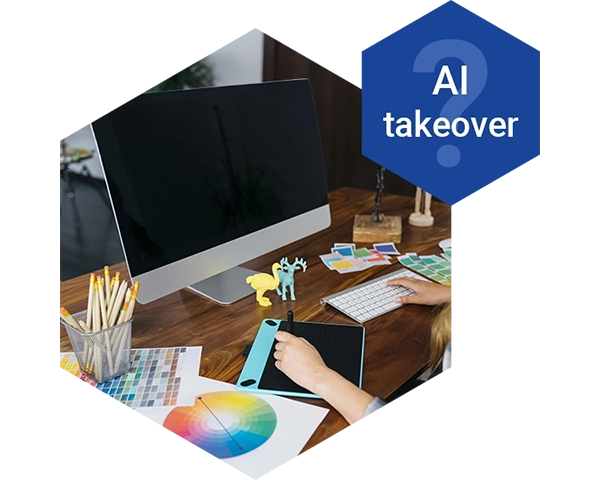
According to our expert at Softwarium, "AI can replace low-skilled workers but not qualified professionals. It simplifies idea generation and provides templates for further processing. AI cannot consistently deliver visuals for the same project over time. Designers should learn to use AI, choosing platforms cautiously based on their budget."
This perspective highlights a crucial point: AI's capacity to augment the design process, rather than replace the creative intuition and expertise of professional designers.
AI tools like Midjourney and DALL-E have demonstrated remarkable abilities in generating visual content. They can produce images from textual descriptions, offering designers a new way to kickstart the creative process and explore a wide range of visual concepts quickly. These tools serve as powerful assistants in the ideation phase, providing inspiration and a base from which designers can refine and perfect their visions.
However, while AI can generate compelling imagery, it lacks the ability to understand and maintain the cohesive brand identity and message across a project's various components. Consistency in visual storytelling and brand representation is key in graphic design, requiring a nuanced understanding of the brand, its audience, and the project's goals. This level of contextual awareness and strategic thinking remains a uniquely human skill.
Jobs That AI Can't Replace
As artificial intelligence (AI) continues to evolve, its influence is being felt across a multitude of sectors, revolutionizing how tasks are performed and services are delivered. From healthcare to finance, AI's capabilities are expanding, automating processes with efficiency and precision previously unattainable. However, despite these technological leaps, there remains a domain where AI cannot fully tread: jobs that inherently require the human element. In roles where understanding, empathy, and personal touch are paramount, AI finds its limitations. Among these roles, real estate agents, recruiters, and sales professionals stand out as examples where the unique value of human insight and interaction cannot be replicated by machines.
Despite AI's impressive advancements, it lacks the capacity for empathy, the ability to forge meaningful connections, and the nuanced judgment that are crucial in fields like real estate, recruitment, and sales. These sectors thrive on the human touch — on understanding, personal interactions, and the ability to build trust — which are qualities that AI cannot replicate. Thus, while AI can augment and streamline processes, the core of these professions remains irrevocably human, underscoring the indispensable role of human professionals in a technologically advancing world.
Conclusion
While AI presents opportunities for operational efficiency and innovation, the irreplaceable qualities of empathy, creativity, and personal connection inherent in human roles underline the limitations of technology in replicating the full spectrum of human capabilities. This insight becomes particularly poignant in the context of employers considering AI as a cost-saving measure over human talent.
A forward-looking approach for businesses lies in leveraging AI as a complement to, rather than a replacement for, the human workforce. Such a strategy not only harnesses the strengths of both AI and human skills but also addresses the broader implications for employee morale, customer satisfaction, and organizational culture. By adopting a balanced perspective that values both technology and human talent, businesses can foster a more sustainable and inclusive future.





